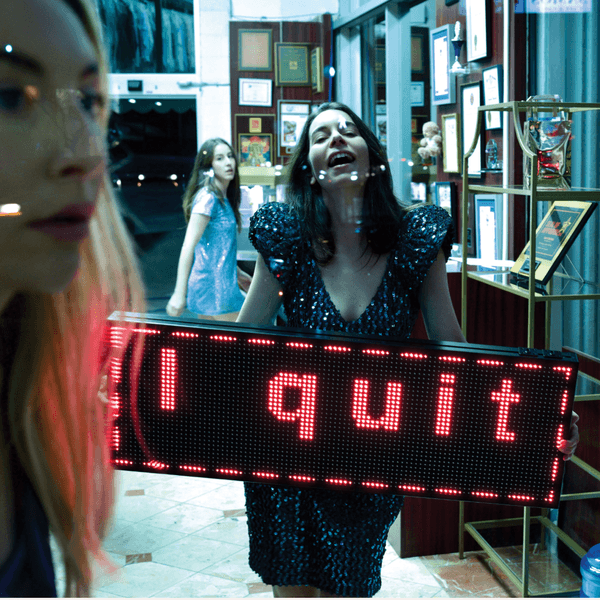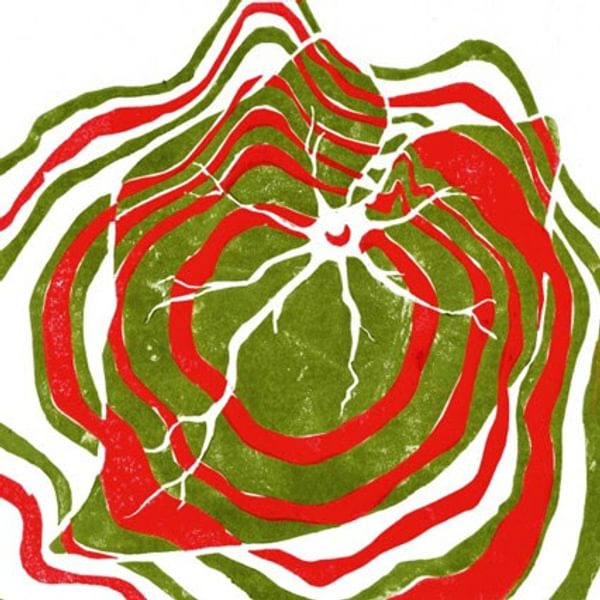
The power and authority of Summer Cannibals
Jessica Boudreaux of Portland punk quartet Summer Cannibals played a gig the night before but answers the phone fast and with vibrant enthusiasm.
When I ask how she's recovering, she laughs and explains that it was an all-ages space with a curfew of 11pm. I later discover that within the first six months of 2019, Summer Cannibals have already played 70 gigs, and the hustle is not new to them. The fact that their new album is titled Can't Tell Me No is no surprise.
It starts with a whole scrapped record. For a whole year, an album was in the process of being shopped and polished. It only took one day for it to be discarded due to the actions of an individual involved in making the record. When asked if it pained Boudreaux to have to abandon the material, she contemplates, "I think it could've been [but, ultimately] the two options were: don't put out this record and... don't put out a record. Or don't put out this record and get out on it and make a new one that we like more."
And, luckily, she's an ambition artist who moves from one project to the next as quickly as possible, so it wasn't trouble to be in the studio the day after making the decision. In fact, it was more of a blessing. "It sucked for like a day but by the time we were working on the next one, which was the next day, it all felt better because the songs just felt better and they felt truer to me. And on the record that we had been shopping, Cassi [guitar] and Ethan [bass] didn't make that record with Devon [drums] and I. And they were totally a part of every aspect of it. It all made up for the tough decision, I feel like it served us better in the long run."
After devastating news about a trusted person befalls a musician, it seems natural that they would end up in the studio. For Boudreaux, it was her opportunity to process her emotions post-incident as much as it was her task to produce another album. The result is inevitably earnest and candid. Without having time to overthink, she let her stream-of-consciousness take the wheel and steer her where she needed to go. "I wasn’t thinking that much about [the lyrics]; I was just letting things come out." Even though the situation demanded 14-hour studio days and intimidating deadlines, Boudreaux says, "It almost didn’t feel that unusual for me," as a musician who, in the past, has been writing the next record while in the midst of shopping a current one.
It's another instance that approves them for the use of the title Can't Tell Me No; the grind and devotion have been evident since the beginning of their career, and just as palpable in the music. From the first track, "False Anthem", the band is already making the bold proclamations that everyone else is too afraid to: "Hate who they are / Say you hate what they do / But you love all the things / That they promise you..." It may seem like Summer Cannibals are unleashing their anger and letting their punk roots manifest, but Boudreaux doesn't even consider this album to be angry, let alone punk. If anything, it's full of composure and relief to be able to release this information from her system and experience liberation while doing so. "I think it says a lot about where we're all at," she says of this change of approach from punk and angry to pop and level-headed. She laughs as she adds, "I don’t think any of us are still in our angry punk phases."
"I think it says a lot about where we're all at. I don’t think any of us are still in our angry punk phases." - Jessica Boudreaux
However, that isn't to say that if you're in your angry punk phase, you won’t enjoy the album. The bassline in "Behave" feels volatile from the start, especially when Boudreaux's cheeky voice comes in, singing, "I try to behave," and it all ties together the way an anthem of resistance does. The attitude is overpoweringly sardonic and rebellious, but, for most of the album, the lyricism dwells on the future rather than the past. Boudreaux proves that she’s moving on in "Like I Used To", listing off the ways in which her life has improved since cutting off abuse, "Now I don't cry like I used to / I don't fight like I used to / I don't pray like I used to / 'Cause without you I don’t need to," and using it as a learning experience that bred growth, "I'm done making excuses for those who are useless, yeah / I'm done making excuses for you."
The songs are also too tame to be punk, even though the first three tracks bounce with fiery energy. "Innocent Man" plays out like calm water with some small waves, and "Hesitation" floats like a cloud moving with the wind at an unhurried pace. It's taking its time, and it feels meditative. Boudreaux best accounts for this evolution with her simple revelation, accompanied by a small laugh: "I stopped feeling like every song needed to be a rager."

It's an important step - realizing that a song doesn't have to consist of typical 'rager' qualities to be a good song. Songs can be as slow as a snail's slithery trek and still evoke exhilaration. The relaxed tempo of "Spin" doesn’t hinder the intensity of the profound lines, "Can love even be selfless? Help me, help you / We're all just helpless," and in fact, it emphasizes its significance. "I think it was important for all of us as musicians to experiment with genre and also just with textures," says Boudreaux, "and I think making this collaborative record was a big stepping stone for this band." The textures are best explored at the end of "Spin", when the song culminates into a whirlpool of vibrant instrumentation and silky vocals that emanate the atmosphere of a dream.
With all the dreaminess seeping in through the lush instrumentals, Boudreaux is still more grounded in reality than ever. She breaks through with some of the rawest truths, such as in "One Of Many", which drips with sonic dreaminess, when she gets straight to the point in the first couple of lines, "I don't wanna be / I don't wanna be one of many," and then adds, guiltily, "I know it’s selfish but I like to be it." Even if she knows it's selfish, which it really isn't, she persists throughout the song, knowing that it’s not too much to ask for, "Don’t wanna be your pillow talk in the evening / You touch my leg and then you go home with her / Don't wanna be something you love in convenience / I wanna be it."

It's a proclamation of her desire for not only this relationship but herself and the amount of power, care, and attention she is given. It belongs perfectly under the album's title Can't Tell Me No, because, for over four minutes, she's explaining how she deserves to be treated, and the options posed are either to comply or exit her life. As much as it is a catchy pop song about love, she is taking action to destroy miniature power dynamics in her life where she falls at the bottom.
What lies at the heart of Can’t Tell Me No is essentially what lies at the heart of every album: communication. The album works as a source for the band to express what may be harder to convey through other facets. Boudreaux's echo of "I am not your bitch," on the title track is cathartic and definitely not safe to say directly to who she's addressing via music. At the same time, Can't Tell Me No is a piece in the healing process and is Boudreaux looking in a mirror and dissecting herself. She had a lot of ruminating to do before the start of this album, and it's evident that it was all poured into these all-encompassing meditations. The product is sincere, thoughtful art.
Get the Best Fit take on the week in music direct to your inbox every Friday

Loyle Carner
hopefully !

Yaya Bey
do it afraid

Haim
I quit





